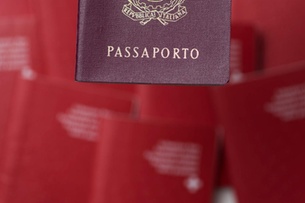Almost a quarter of Swiss dual nationals possess an Italian passport. Around 17% of Swiss residents over the age of 15 hold two passports. The canton of Geneva has the highest proportion of dual nationals at 45%. According to figures released by the Federal Statistical Office (FSO) on Tuesday, the double nationality rate exceeds 20% in the cantons of Zurich, Basel City, Ticino, Vaud and Neuchâtel. The cantons with the lowest proportion of Swiss citizens with a second passport are Bern, Uri, Schwyz, Obwalden, Nidwalden, Appenzell Inner Rhodes and Appenzell Outer Rhodes, where the values do not exceed 10%. Among the dual national population, 64.4% obtained Swiss nationality by naturalisation, while 35.6% had it at
Topics:
Swissinfo considers the following as important: 3) Swiss Markets and News, Featured, Latest News, newsletter
This could be interesting, too:
Eamonn Sheridan writes CHF traders note – Two Swiss National Bank speakers due Thursday, November 21
Charles Hugh Smith writes How Do We Fix the Collapse of Quality?
Marc Chandler writes Sterling and Gilts Pressed Lower by Firmer CPI
Michael Lebowitz writes Trump Tariffs Are Inflationary Claim The Experts

Almost a quarter of Swiss dual nationals possess an Italian passport.
Around 17% of Swiss residents over the age of 15 hold two passports. The canton of Geneva has the highest proportion of dual nationals at 45%.
According to figures released by the Federal Statistical Office (FSO) on Tuesday, the double nationality rate exceeds 20% in the cantons of Zurich, Basel City, Ticino, Vaud and Neuchâtel. The cantons with the lowest proportion of Swiss citizens with a second passport are Bern, Uri, Schwyz, Obwalden, Nidwalden, Appenzell Inner Rhodes and Appenzell Outer Rhodes, where the values do not exceed 10%.
Among the dual national population, 64.4% obtained Swiss nationality by naturalisation, while 35.6% had it at birth. The non-Swiss nationality most prevalent among dual nationals is Italian (24.7%), followed by French (11.2%) and German (7.8%).
A total of 45,000 people were naturalised in Switzerland in 2017: 2,000 more than the previous year. More than three-quarters of them came from a European country. One-fifth of the total benefited from a facilitated naturalisation process offered to spouses and children of Swiss citizens.
Tags: Featured,Latest news,newsletter
